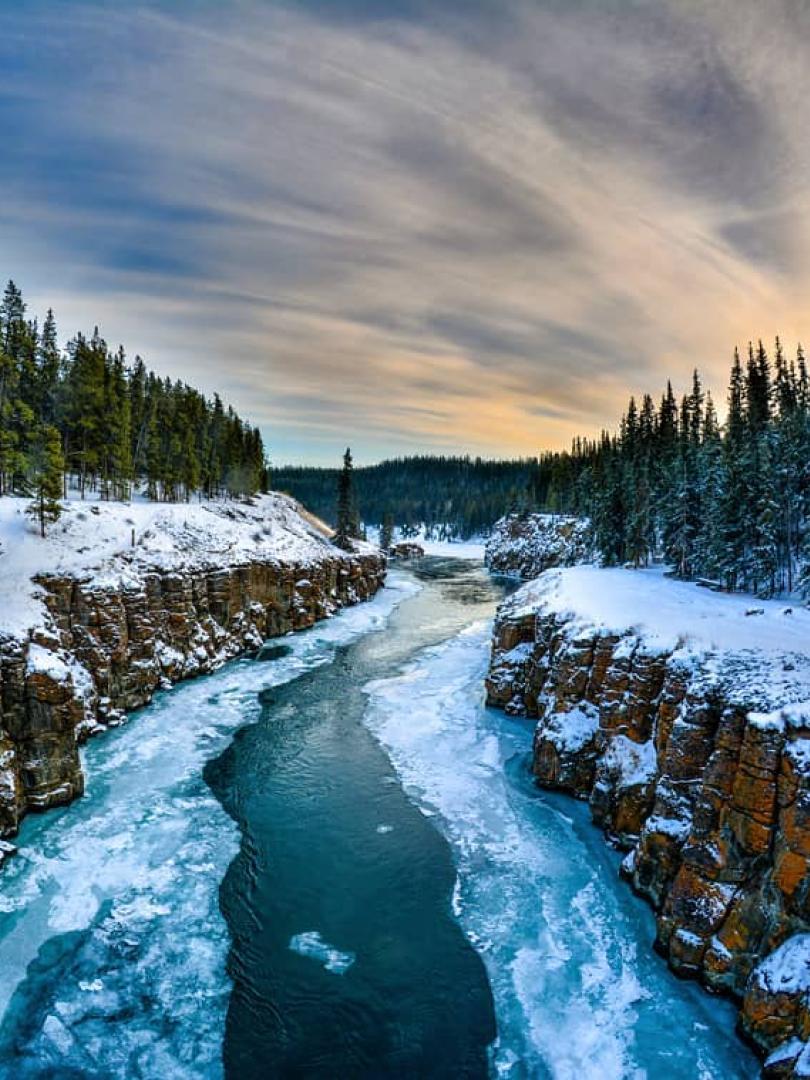
Yukon First Nations

1

The Yukon is home to 14 First Nations, with a rich Indigenous heritage woven into its landscapes. Whitehorse reflects this cultural depth daily, but special events like National Indigenous Peoples Day and the Adäka Cultural Festival offer immersive experiences. Visitors can join workshops on traditional skills such as moose hair tufting, beading, and drum making.
2

Key historical sites, like Miles Canyon, were once First Nations fish camps, with guided tours available to explore both natural and cultural history. In Dawson City, the Dänojà Zho Cultural Centre showcases Tr'ondëk Hwëch'in history and artwork, while cultural tours offer river trips to traditional sites like Moosehide Village and Fort Selkirk.
3

In the Klondike region, the heritage of the Tr'ondëk Hwëch'in First Nation is deeply rooted. Cultural centres, such as the Tagé Cho Hudän Interpretive Centre in Carmacks and the Big Jonathan House in Pelly Crossing, feature artifacts like dugout canoes, salmon skin dog packs, and traditional beadwork.
4

Southern Yukon also offers cultural immersion with places like Long Ago Peoples Place and the Da Kų Cultural Centre, where visitors can learn about Southern Tutchone history, see traditional crafts, and enjoy community events. Kluane Museum of History and the White River First Nation Visitor Centre in Beaver Creek highlight the region's Indigenous past through artifacts and exhibits.
5

Teslin and Carcross offer insights into the Inland Tlingit and Carcross Tagish First Nations, with museums and heritage centres featuring traditional art, ceremonial regalia, and opportunities to learn from master carvers.
6

Across the Yukon, First Nations tour operators provide deeper engagement with Indigenous culture through wilderness tours, traditional camps, and storytelling, ensuring a rich and unforgettable experience.


